Other countries unlikely to follow the UK out of Europe although the EU must learn from its mistakes
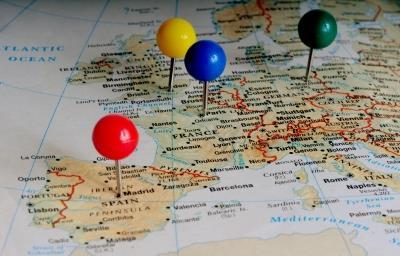
Years of uncertainty await the UK as it negotiates its exit out of the European Union with the remaining member states. In his presentation, Brian Lawson, senior consultant banking risk, economics and country risk at IHS, said this uncertainty was a bad thing for the UK economy, as it was very difficult for business managers to conduct significant new investment in the UK if you do not know the trade regime under which you are going to be operating for the following five or ten years.
The key issue revolves around how the UK can continue accessing Europe without economic dislocation, but Lawson said there was no perfect answer to this. “There is an option available to the UK which could work quite well, if we were willing to pay that price,” Lawson said. “That is the European Economic Area (EEA), which basically grants continued access to the single market. However, it comes with a very high price, which is we have to continue paying the EU, we have to accept EU legislation without having a vote in its formation and we are unable to limit the freedom of movement.”
In the context of how the Brexit campaign was held, that last point in particular is a politically very high price for those politicians who pledged they would use Brexit as a means of regaining control of UK borders. The upcoming negotiations will not be easy for the UK and it will be hard work to get bilateral treaties, Lawson said.
“It is remarkable to consider that people honestly presented to the British public that they could negotiate a trade deal with the EU and with a number of other countries in a two-year period,” Lawson said. “That is an unprecedented timetable.
Trade deals are very complex and it’s highly unusual to get them done in less than five to ten years, but especially if you have a civil service that actually hasn’t hired for Brexit in the first place, which happens to be the case in the UK.
“The UK had some 20 experts in place on trade treaties at the time of the referendum, it hadn’t hired any new people in preparation for the enormous workload they have, so they have an enormous resource issue.”
In addition to the complexity of agreeing trade deals, the UK will also be negotiating with a tough partner as the EU really does not want Brexit to be too easy, “because that would give a very wrong message to the rest of Europe”.
“If you make Brexit too easy, it’s an advertisement that you can get what you want by threatening to leave,” Lawson said. “The EU clearly doesn’t want that to happen, so there are very strong reasons, even given the large commercial balance the EU has in its trade with the UK, not to make life too easy in this process.”
On top of this, the UK has its internal difficulties in terms of integrity. The Scottish National Party would like a second referendum on Scottish independence, citing the importance of the EU to Scotland and the Scots’ majority vote in favour of EU membership.
However, Lawson pointed out there were a few fallacies in that line of thinking. First, it is far from clear that, if there were a second referendum in Scotland, the “Yes” vote would win. In fact, recent polls have suggested a clear majority to remain part of the UK.
“Second, it is also misleading to suggest that if Scotland were to become independent, it could do so and become an EU member immediately. That would be a very tough sell for example for Spain to approve, because it precisely wants to oppose that argument in respect to Catalonia. If you can leave an EU member state the idea is you go to the back of the queue, you apply, you go through approvals, and you spend the following X years waiting to get that.”
Unlike Scotland, Northern Ireland has not been discussed as much. Lawson believes this may be underestimated at the moment in terms of the impact on its economy, especially if there were tariff boundaries to what is currently an open border.
“In the event that the open border is taken away, we are looking at quite significant distortions in the Irish rural economy and we view that that would give new momentum to the Republican movement and especially its radical components. We see political threats in that, including the risk of a return to violence within the Irish economy as a whole and certainly more widespread calls for a referendum for Irish unification than we’ve heard so far. It’s a low-key debate so far but it could well get worse.”
For the EU as a whole, IHS believes the likelihood of other countries following suit is very limited. “When we look at some of the countries with at least elements of anti-European sentiments in their political make-up, we don’t think that the core scenario in any one of those countries is that they will move to actual exit from the EU. We should also separate between migration concerns and anti-European concerns. Here in the UK we managed to combine the two, but in places such as Austria, the Netherlands and Germany, where there are right-wing parties, they tend to be more anti-migration than anti-Europe in the bigger sense.”
The country with possibly the greater risk is France. But it is a low risk, because the normal scenario in France is that, even if the National Front were to win the first round of the elections, all mainstream parties will then team up against them and they would lose the second round. “It’s only if there were a real shock, such as a major terrorist assault between the first and second round of voting that somehow leads to a rogue result, that the National Front actually has a chance of winning. It’s a remote one and we do see that very much as an unlikely scenario.”
Lawson said: “Overall, we do not see the EU falling apart over this, in many ways it’s actually a salutary lesson, but ultimately there will be pressure on the EU to learn from this and perhaps show greater flexibility in future cases of this sort.”






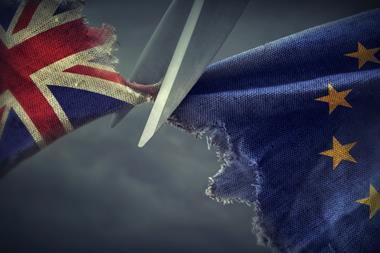

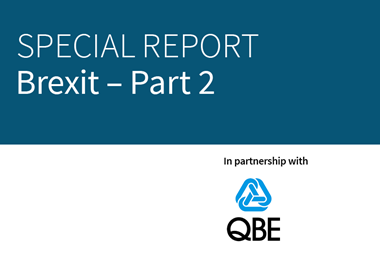


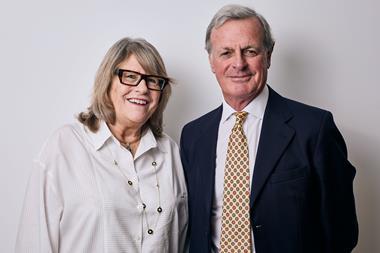




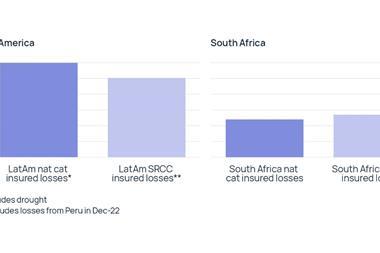



No comments yet